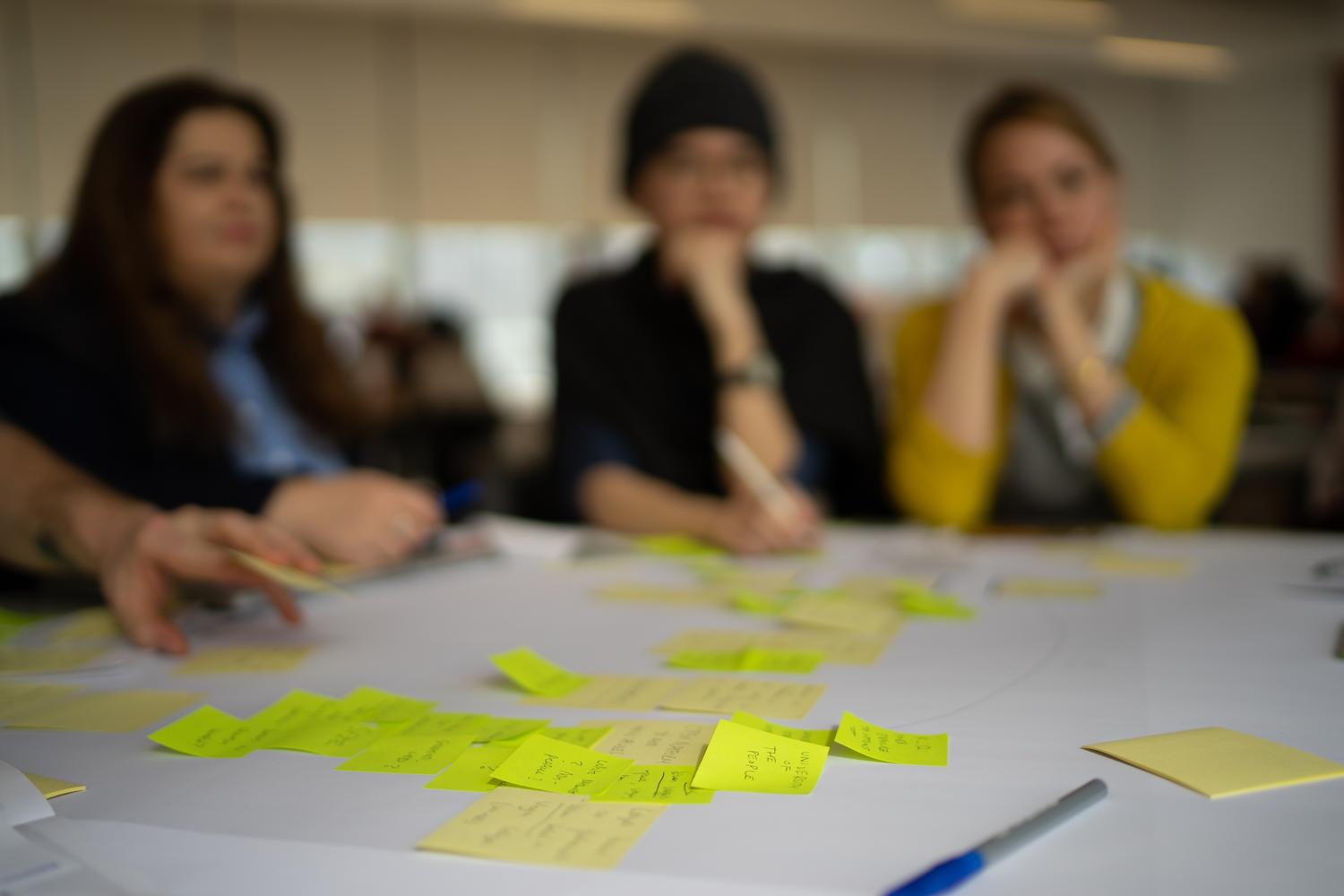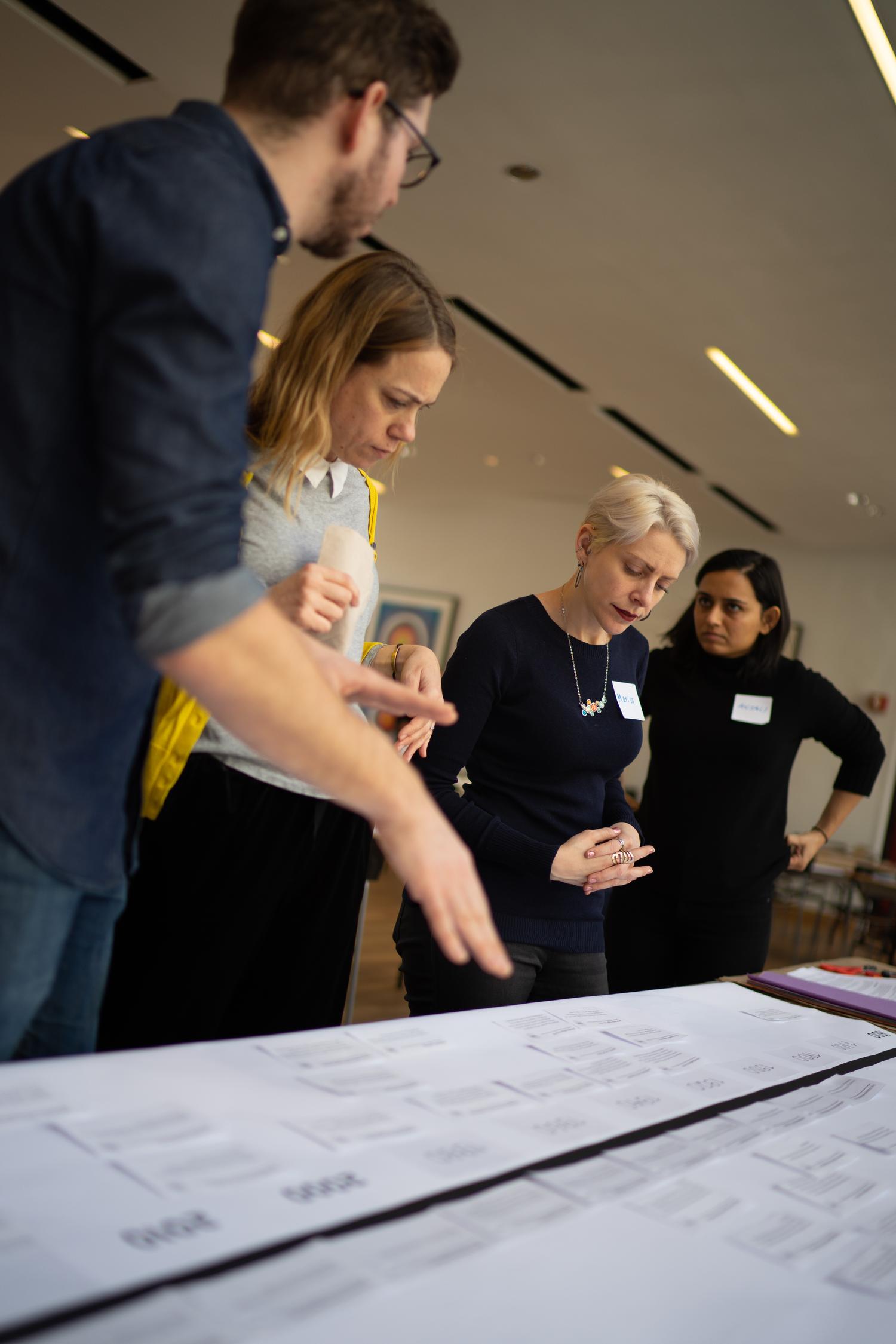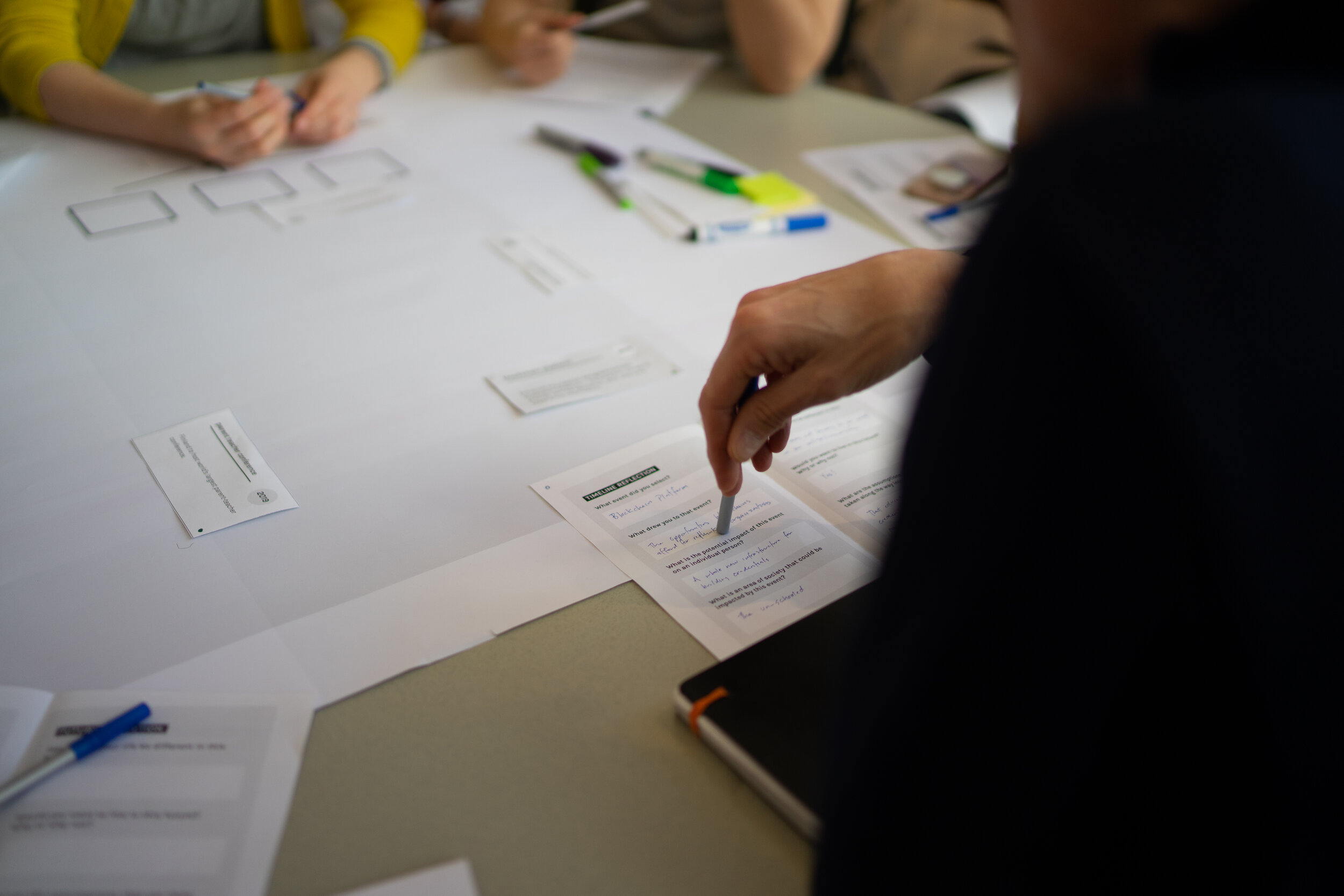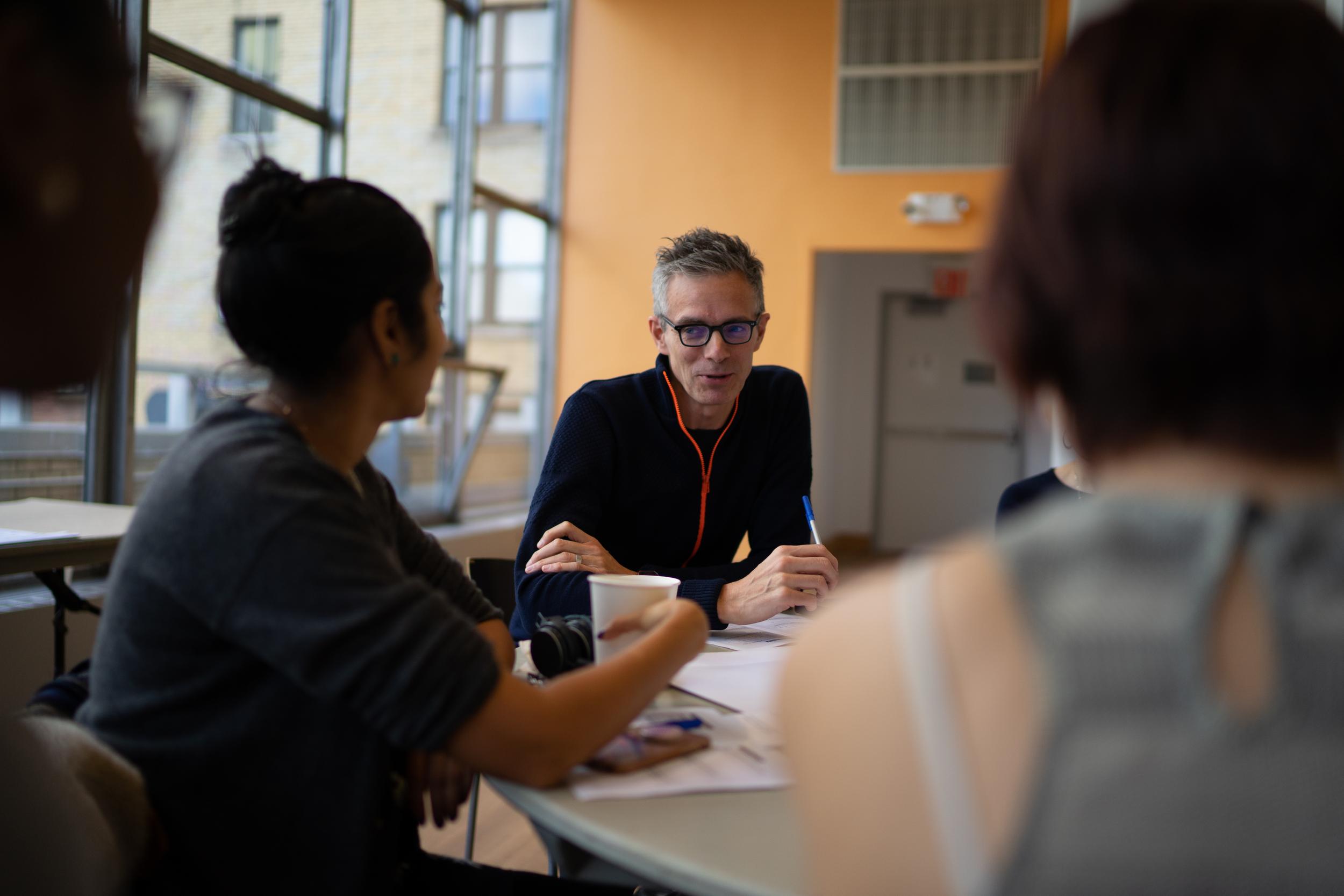Exploring Higher Education Futures: A Speculative Workshop
speculative futures
workshop
In a speculative workshop, we attempted to collectively grasp the potential implications for higher education in the future. This involved engaging in discussions and jointly creating ideas with our community partners at The New School, including students, faculty, administrative staff, and other stakeholders. Throughout a span of 3 hours, we delved into prospective shifts that could be encountered by higher education institutions in the immediate, intermediate, and distant tomorrows.





Workshop Design
The workshop began with situating participants in a timeline of higher education. This helped connect events from the past and present to understand how they relate to different outcomes and how participants themselves are connected to these events. Next, participants were guided to pick an event they found interesting and talked about it with everyone in the group.
Then, the group decided to combine two connected events to think about what might happen next. In this case, the group chose "Blockchain certificate" and "No more tenure in Iowa". They came up with various possible situations, some positive and others negative, along with current issues.
In the second part of the workshop, participants chose to focus more on open-platform higher education. They imagined future headlines that showed different situations and built more detailed stories about them. After each activity, participants took time to think about what they learned and shared their thoughts with the group.
Workshop Design
The workshop began with situating participants in a timeline of higher education. This helped connect events from the past and present to understand how they relate to different outcomes and how participants themselves are connected to these events. Next, participants were guided to pick an event they found interesting and talked about it with everyone in the group.
Then, the group decided to combine two connected events to think about what might happen next. In this case, the group chose "Blockchain certificate" and "No more tenure in Iowa". They came up with various possible situations, some positive and others negative, along with current issues.
In the second part of the workshop, participants chose to focus more on open-platform higher education. They imagined future headlines that showed different situations and built more detailed stories about them. After each activity, participants took time to think about what they learned and shared their thoughts with the group.
Then, the group decided to combine two connected events to think about what might happen next. In this case, the group chose "Blockchain certificate" and "No more tenure in Iowa". They came up with various possible situations, some positive and others negative, along with current issues.
In the second part of the workshop, participants chose to focus more on open-platform higher education. They imagined future headlines that showed different situations and built more detailed stories about them. After each activity, participants took time to think about what they learned and shared their thoughts with the group.
Key Points
The workshop explored two intriguing models for higher education: Open-Format Education and Value-based Learning. We found examples of these structures, like partnerships with companies, personalized learning, and freedom for both professors and students. We came up with different possible situations, such as huge universities, shorter academic plans, special "platform" programs, combined K-12 and college experiences, and varying degrees of self-direction for students and professors.
-
We looked into how power is changing in education, how traditional and new decision-makers like the market, institutions, faculty, and students negotiate their influence.
-
We also considered how to blend new values with existing systems through a value-based approach.
-
Equity was another big topic. Most future ideas assume technology will be available to all. We questioned how this fairness issue will be dealt with.
-
The workshop brought up the question of corporations having a big say in education. We debated the balance between profit-driven motives and academic freedom.
-
We also thought about how younger students could have more choices to explore their interests, creating a path for continuous learning throughout life.
Key Points
The workshop explored two intriguing models for higher education: Open-Format Education and Value-based Learning. We found examples of these structures, like partnerships with companies, personalized learning, and freedom for both professors and students. We came up with different possible situations, such as huge universities, shorter academic plans, special "platform" programs, combined K-12 and college experiences, and varying degrees of self-direction for students and professors.
-
We looked into how power is changing in education, how traditional and new decision-makers like the market, institutions, faculty, and students negotiate their influence.
-
We also considered how to blend new values with existing systems through a value-based approach.
-
Equity was another big topic. Most future ideas assume technology will be available to all. We questioned how this fairness issue will be dealt with.
-
The workshop brought up the question of corporations having a big say in education. We debated the balance between profit-driven motives and academic freedom.
- We also thought about how younger students could have more choices to explore their interests, creating a path for continuous learning throughout life.
Team
David Baum - Anjali Bhalodia - Sudeshna Mahata - Jonique Lyles - Nam Pham - Hanna de Vries
Team
David Baum - Anjali Bhalodia - Sudeshna Mahata - Jonique Lyles - Nam Pham - Hanna de Vries